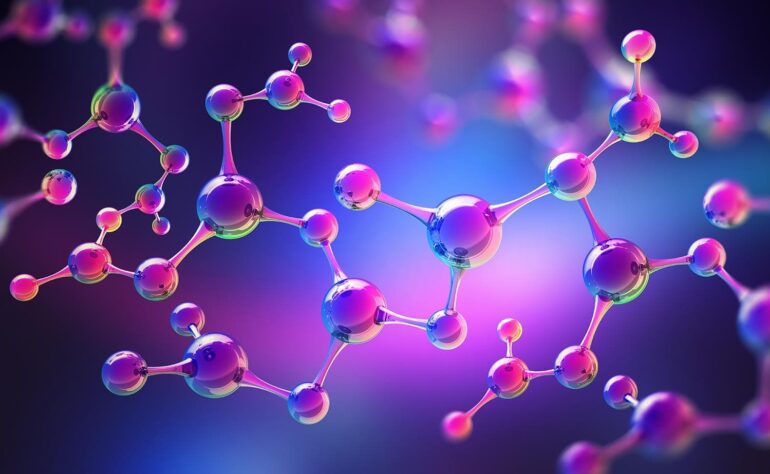TL;DR:
- The National Research Council of Canada (NRC) collaborates with AI researchers to utilize artificial intelligence in molecule discovery.
- The aim is to accelerate the identification of molecules for healthcare and clean energy applications while reducing costs.
- AI-driven exploration and active learning algorithms enhance the search process, potentially cutting years off the discovery phase.
- The collaboration between the NRC and renowned AI researcher Yoshua Bengio aims to build a high-performance machine learning framework for identifying molecules with specific properties.
- Cross-team collaborations with leading institutions amplify expertise and drive innovation.
- The project aligns with the NRC’s long-term goal of developing AI tools to accelerate Canada’s scientific and engineering capabilities.
Main AI News:
In today’s fast-paced world, where breakthroughs in healthcare and clean energy are more crucial than ever, the process of identifying molecules with specific properties can be an arduous and time-consuming endeavor. It often takes over a decade and costs billions of dollars to discover molecules that can lead to life-saving vaccines, effective drugs, or sustainable solutions. However, a groundbreaking collaboration between the National Research Council of Canada (NRC) and prominent AI researchers is set to transform this process, harnessing the power of artificial intelligence (AI) to revolutionize scientific discovery and advance our understanding of health and climate-related issues.
The NRC’s Artificial Intelligence for Design (AI4D) Challenge program, backed by a substantial $2.5 million investment over three years, is spearheading this transformative project. By leveraging AI technologies, the aim is to accelerate the discovery of molecules with immense potential for healthcare applications and clean energy solutions, all while significantly reducing costs. Such advancements have far-reaching implications, extending beyond the realms of healthcare to encompass environmentally friendly materials, innovative battery technology for electric vehicles, and enhanced methods for carbon capture and storage.
Harry Guo, Senior Research Officer at the NRC’s Digital Technologies Research Centre and the project lead, emphasizes the profound impact that AI can have on this process. With billions of potential candidates to consider, finding the right molecule can often feel like searching for a needle in a haystack. However, by employing exploration and active knowledge-seeking learning algorithms, AI has the capability to learn from data and experience, effectively guiding the search and slashing years off the process.
The collaboration between Harry Guo and Yoshua Bengio, one of the world’s foremost AI researchers and founder of Mila, the Quebec Artificial Intelligence Institute, brings together cutting-edge expertise and resources. Bengio, a recipient of the prestigious Turing Award in 2018, believes that AI-driven scientific discovery represents a pivotal advancement for research in general. He envisions that it will enable us to tackle critical challenges in healthcare and the environment, revolutionizing scientific theories and driving innovation on an unprecedented scale. The ultimate goal of this partnership is to develop an efficient and high-performance machine learning framework that can identify molecules with designated properties effectively.
This ambitious endeavor extends beyond the confines of the NRC and Mila. The project also involves collaboration with other esteemed institutions, including the NRC’s Security and Disruptive Technologies Research Centre, McGill University, and SickKids. By pooling their domain expertise and machine learning proficiency, these teams are not only advancing the creation of the machine learning framework but also applying it to accelerate Canada’s capacity for scientific and engineering innovations. Through cross-team collaborations, this project aims to foster novel perspectives and diverse expertise, igniting innovation and propelling the field of AI for scientific discovery forward.
Joel Martin, Chief Digital Research Officer at the NRC, emphasizes the importance of such collaborative efforts in advancing AI for scientific discovery. By integrating domain expertise and machine learning capabilities, these collaborations unlock new possibilities and accelerate the pace of innovation. With a shared commitment to pushing the boundaries of scientific knowledge and engineering prowess, this project exemplifies the NRC’s long-term vision of equipping Canada with powerful AI tools that can drive transformative advancements across various domains.
Conclusion:
The utilization of AI in molecule discovery presents a groundbreaking opportunity to revolutionize scientific exploration. By leveraging AI technologies, the process can be expedited, leading to cost reduction and accelerated discoveries. The collaboration between the NRC and Yoshua Bengio, along with other prominent institutions, creates a dynamic ecosystem of expertise and innovation. This transformative endeavor holds great potential, not only in advancing healthcare and clean energy solutions but also in shaping the market by introducing efficient and high-performance machine learning frameworks that can drive scientific advancements and engineering innovations.

